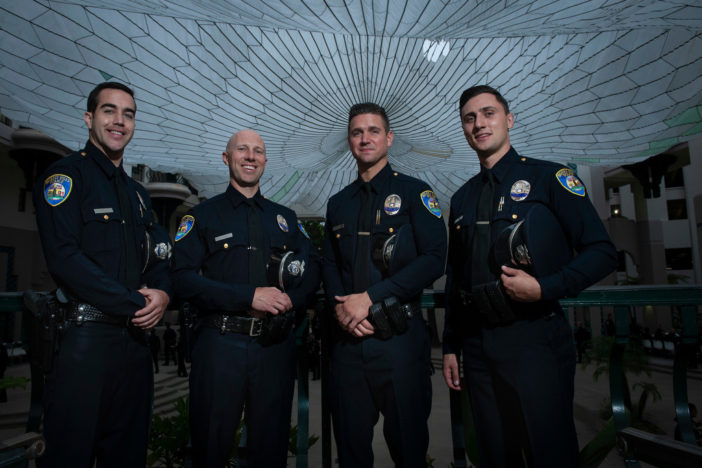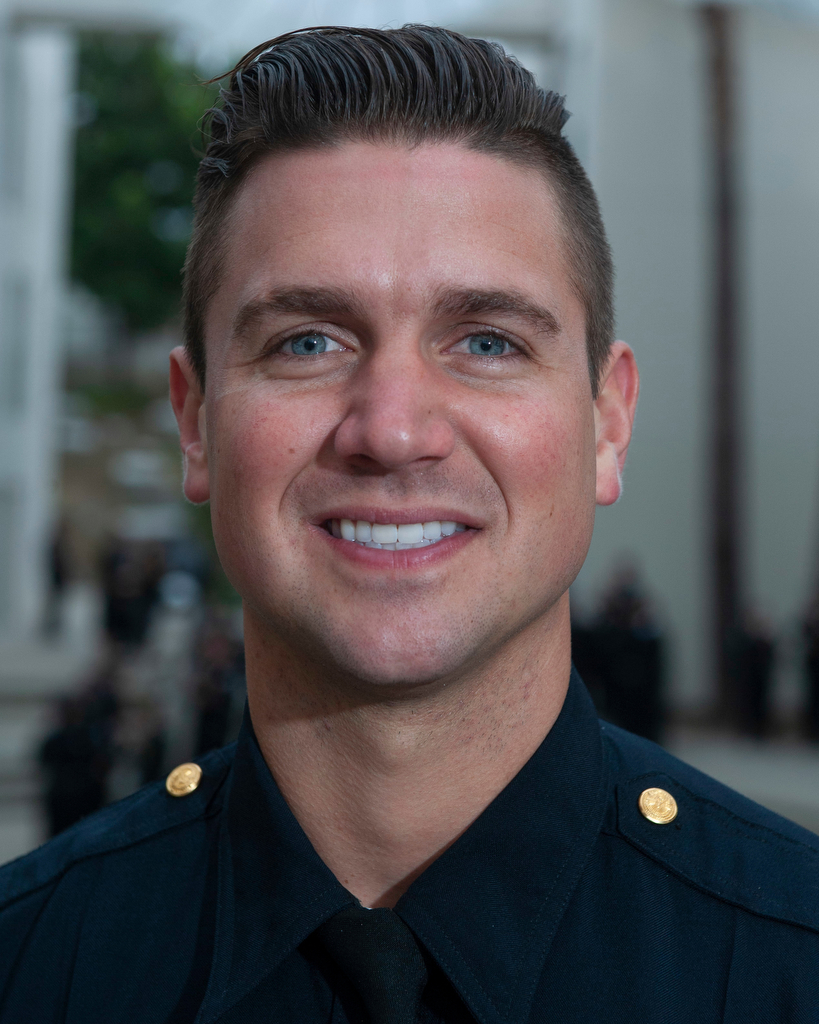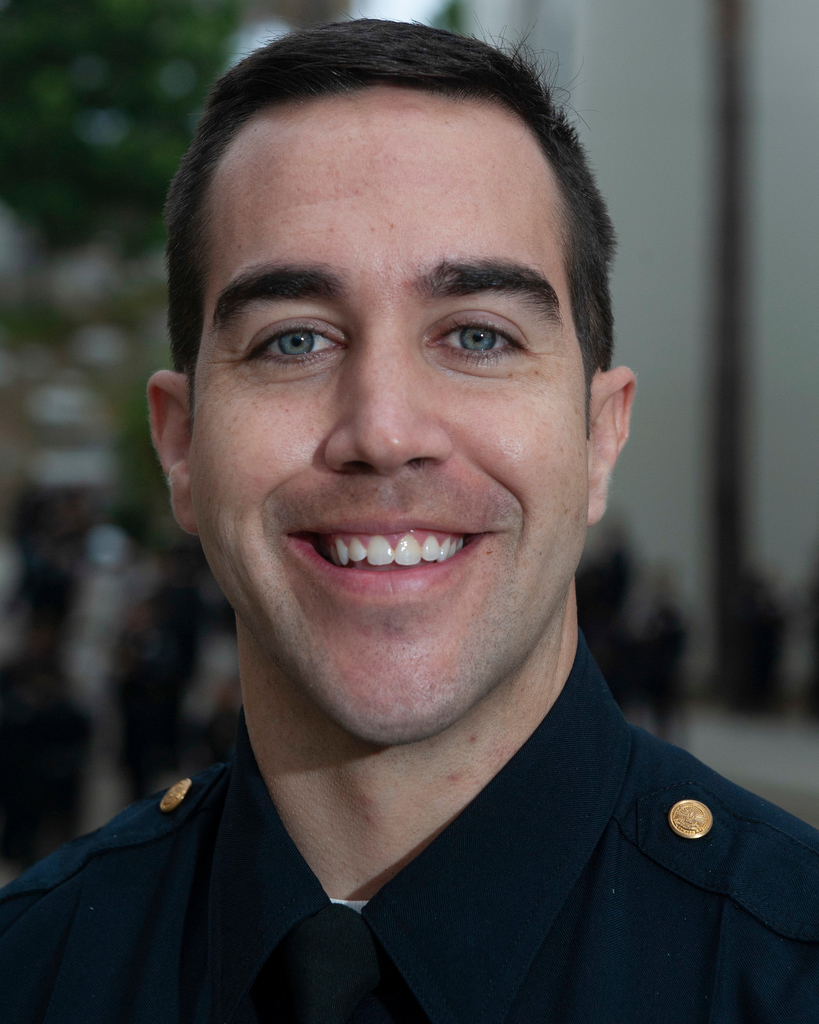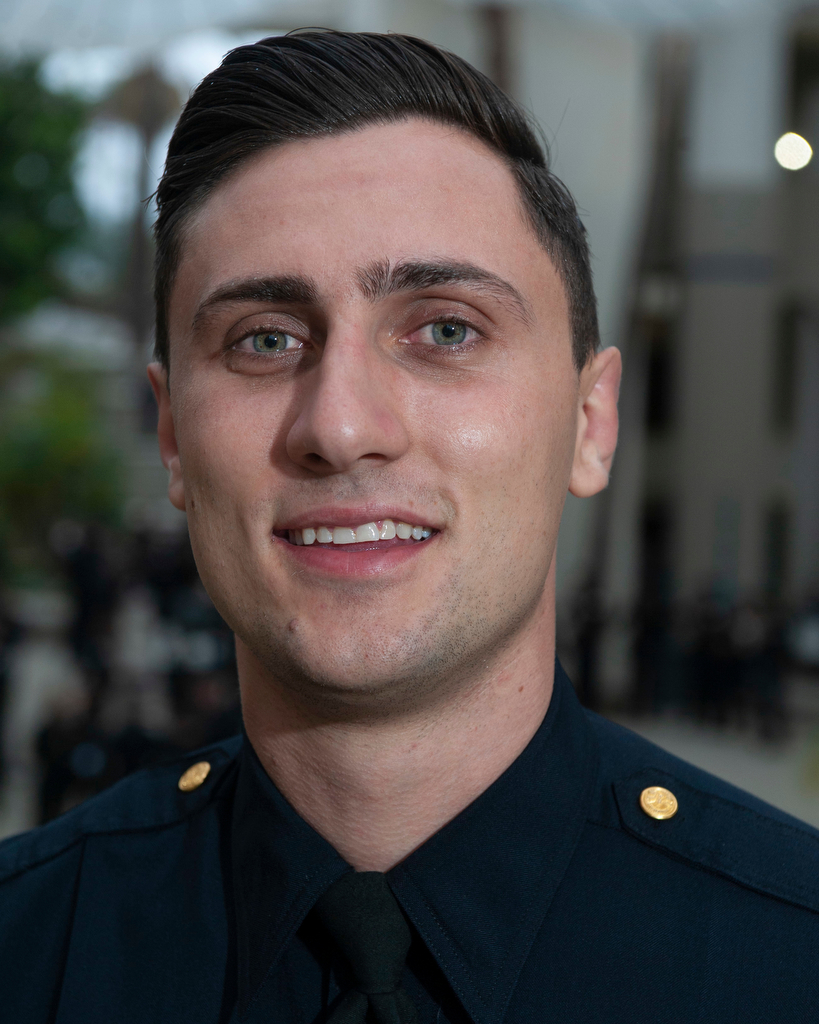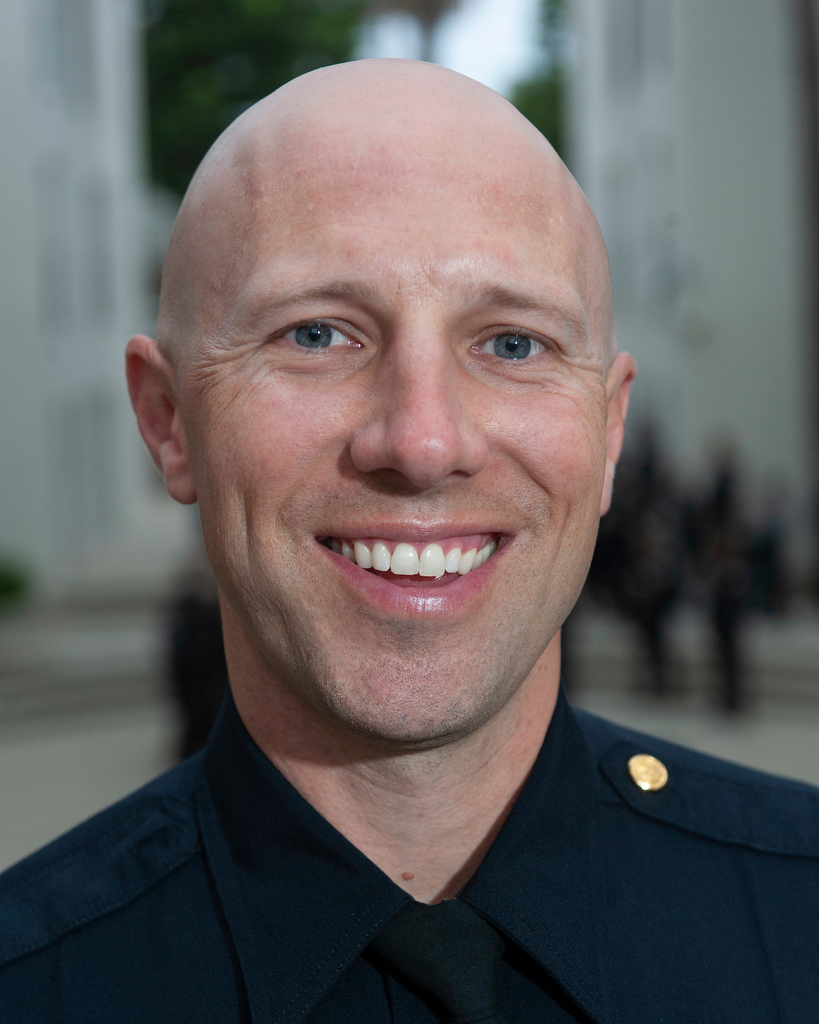The call came in at 2:37 a.m. on June 4: 25-year-old woman. Possible opioid overdose.
A minute and a half later, four Beverly Hills police officers arrived at a sober living facility on North Palm Drive. They saw the man who had called for help, a jangle of nerves and panic. In the front passenger seat of a Lexus, a woman was slumped over. Officers Andrew Bromley and Jesse Lyga assessed her. No breathing. No pulse.
Nearly 48,000 people in the United States died of opioid overdose in 2017. In response to this growing crisis, last year the Beverly Hills Police Department equipped all of its vehicles with Narcan toolkits and trained officers how to use the overdose-reversing drug.
Officer James Krug brought the toolkit out as soon as he got to the scene. The officers administered Narcan. Bromley began chest compressions. Officer Erik Rakowski did the breathing portion of CPR.
“We started getting a faint pulse. We had brought her back.”
Rakowski is matter-of-fact when he says this. As if being there in the nick of time is expected. As if young officers’ calm and professionalism can be taken for granted. As if saving lives is commonplace.
Of course, it’s not commonplace. It’s extraordinary. And for the officers of the Beverly Hills Police Department whose quick response time and even faster thinking saved the woman’s life, the events of June 4 will likely set the tone for the rest of their careers.
“I have 10 years on the job, but my partners are much younger. Some are in their early 20s and I know that something like this will fuel them for the rest of their careers,” Rakowski said. “We are proud of our team and our response and the outcome.”
The Narcan and CPR stabilized the woman enough to allow paramedics to rush her to Cedars-Sinai Medical Center. Lyga went with them.
“He talked to her about an hour after the incident at the hospital. She said, ‘What are you doing here?’” Rakowksi said. “He explained the entire situation, that when we arrived, she was dead, and that we had brought her back to life. She was bawling. She was so thankful and so overwhelmed that she had made it through. It was pretty cool.”
Rakowski credits the successful rescue to his colleagues’ quick thinking, but also to the department’s commitment to the community.
“One of the luxuries of working at a city like Beverly Hills is that we’re provided with the best equipment and all the tools, especially in a medical aid situation like this,” he said. “It allows us to act quickly, whatever the situation may be.”
Many of the Beverly Hills Police Department’s calls are medical aid, meaning police officers are often the first responders to medical crises. Having the training and tools to deal with any emergency can mean the difference between life and death.
“Anything that can help us get medical aid to someone when they need it, we are eager to learn about it,” Rakowski said. “That night was amazing teamwork by my partners. The paramedics were saying if we got there a minute later, we wouldn’t have been able to bring her back. We truly saved this girl’s life.”
Rakowski said he hopes the situation prompts people to make that emergency call if someone is in trouble.
“A lot of people are hesitant to call about drug overdoses because they are afraid that they’ll get themselves in trouble,” he said. “We treat these as medical calls because when it comes to health and safety, we want them to make that call.”
It’s a call the officers are ready to answer.
 Behind the Badge
Behind the Badge
